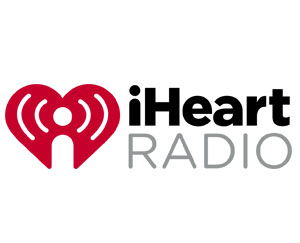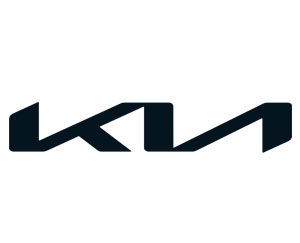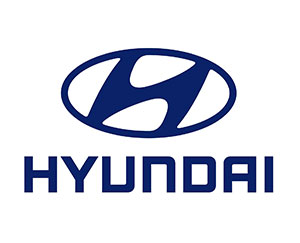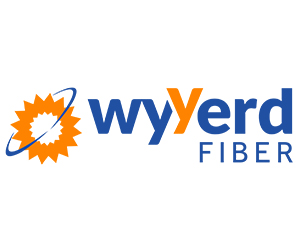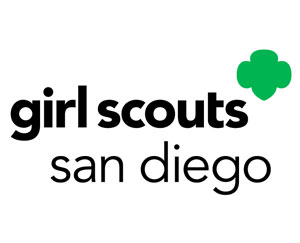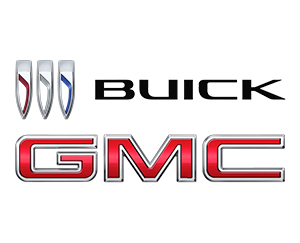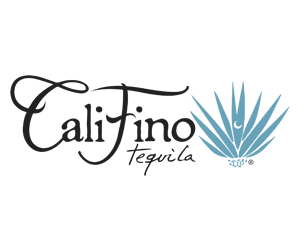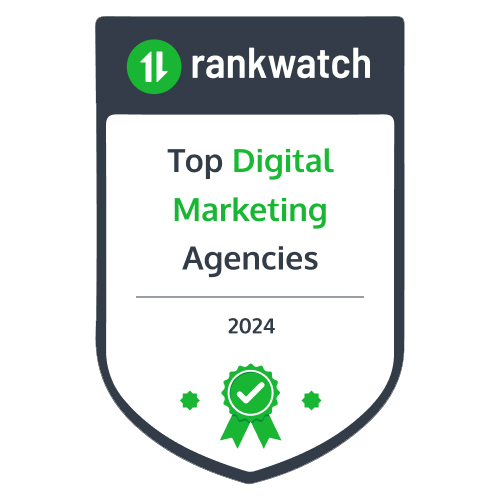Crafting Online Success From Experience
For over two decades, Daniel Travers, the visionary founder of Redideo Studio, has skillfully combined his creative talents with his wealth of experience. With a track record that includes working with esteemed brands like iHeartMedia, Disney, KIA, and more, he brings unparalleled expertise to every project.
This synergy has produced billions of organic multimedia views, ultimately leading to substantial revenue growth and enhanced visibility for small and big businesses.
“I’m excited to share my knowledge and passion with businesses aiming to boost their online presence. Their success is a direct reflection of my own.” – Daniel Travers
Smart Digital Strategies for San Diego
In the active digital scene of San Diego, recognizing the pivotal role of digital marketing isn’t just savvy – it’s essential for business growth. As more consumers navigate the online realm for product insights and purchases, having a robust online presence becomes your ticket to boosting brand visibility and seizing opportunities.
Picture this: Your target audience is exploring iconic landmarks like the USS Midway Museum or the San Diego Zoo, or attending major events such as Comic-Con at the San Diego Convention Center. With the right internet marketing strategies – think SEO, compelling content, social media ads, and engaging email campaigns – you can meet them right where they are, fostering genuine connections and driving those all-important conversions.
San Diego’s vibrant entertainment and tourism industries, along with its thriving real estate market, create a dynamic backdrop for businesses. Imagine your brand standing out among the attractions of Balboa Park or the bustling neighborhoods of downtown.
Digital marketing isn’t just about reaching people; it’s about understanding them. Thanks to sophisticated data analytics, you’ll gain invaluable insights to tweak your tactics, optimize your budget, and stay ahead of the curve in San Diego’s ever-evolving market.
So, think of internet marketing as your trusty sidekick in the bustling streets of San Diego’s digital realm – your secret weapon for making waves, forging bonds, and thriving in this dynamic, sun-soaked cityscape.
Key Digital Marketing Services
- Website Design & Development
- Content & Video Marketing
- Social Media Marketing
- Search Engine Optimization (SEO)
- Pay-Per-Click Advertising (PPC)
- Email Marketing
- Analytics and Reporting
- Online Reputation Management
Client Testimonials: Voices of Delight
“Daniel has done a great job with helping the brand I manage elevate our social media advertisements. He is a very skilled videographer and editor and an excellent source of information and advice when it comes to digital marketing. I highly recommend him and will continue to work with him in the future! 🙂 Thanks Daniel!”
“Daniel is a very creative person with a great business acumen. He helped my company come up with a name that will increase SEO and created a unique logo that everyone in the company loved. He is friendly, on time and very professional. I would highly recommend his services.”
“Daniel is my go-to resource for all things Digital – Graphic Design, Video Production and Website / Word Press Development. He’s both an Artist and a Strategist, and he’s always my first call when I need quality work at affordable rates.”
Explore More Customized Digital Marketing Solutions
Creative
- AI Images & Videos
- Graphic Design & Logos
- Infographics
- Video Including Aerial & 360
- Motion Graphics & 2D Animation
- Live 2D Animation
- Interactive Online Broadcasting
- Illustration
- Photography
Marketing
- Article & Content Creation
- Search Engine Optimization
- Pay-Per-Click Advertising
- OTT Video Ads Management
- Social Media
- Influencer Marketing
- Email & SMS Marketing
- Business Citations
- Google Business Profile Optimization
- Lead Generation
- Podcast Optimization & Management
Shopping
- WordPress
- E-commerce Solutions
- WooCommerce
- Print On Demand Integration
- Google Merchant Management
- Etsy Website Integration
- Merchant Account Setup
- Consumer Financing Programs
Engagement
- Strategic Quizzes
- Calendar Booking Tools
- Event Calendars
- Customized AI Chat Bots
- User Behavior Analysis
- Online Reputation Management

Ignite Your Online Presence
Advertising and marketing online empowers businesses by enabling them to reach their target audience effectively, increase online visibility, and drive conversions.
By utilizing various digital strategies ranging from SEO and social media to content creation and paid advertising, you can stay ahead in the competitive landscape.
If you’re seeking assistance in this realm, Redideo Studio is a full-service digital marketing agency located in the heart of San Diego that can provide the support you need.
FAQs About Digital Marketing Services
The cost of hiring a digital marketing agency can vary quite a bit depending on several factors such as the scope of services, the size of your business, and the agency’s reputation and expertise. Here’s a general breakdown to give you an idea:
- Hourly Rate: Many agencies charge by the hour, with rates typically ranging from $75 to $200 per hour. Larger, more established agencies or those with specialized skills might charge more.
- Monthly Retainer: Some agencies prefer to work on a retainer basis, where you pay a fixed monthly fee for a set range of services. This can range from $1,000 to $10,000 or more per month, depending on your needs and the agency’s offerings.
- Project-Based Pricing: For specific projects like website design, a social media campaign, or SEO services, agencies might offer a flat project rate. These can range from a few thousand dollars for smaller projects to tens of thousands for more extensive campaigns.
- Percentage of Ad Spend: When managing paid advertising campaigns (like Google Ads or Facebook Ads), some agencies charge a percentage of your ad spend. This is typically around 10-20%, though it can vary.
Ultimately, it’s best to discuss your specific needs with potential agencies to get a tailored quote. Many agencies offer flexible pricing models to accommodate different budgets and goals.
Digital marketers can definitely be worth it, especially if you’re looking to grow your business online. Here are a few reasons why investing in a digital marketer or agency can be beneficial:
- Expertise and Experience: Digital marketers have specialized knowledge and experience in areas like SEO, social media, content creation, and paid advertising. They stay updated on the latest trends and algorithms, ensuring your strategies are effective and up-to-date.
- Time Savings: Managing digital marketing campaigns can be time-consuming. Hiring a professional allows you to focus on running your business while they handle your marketing efforts.
- Better Results: With their expertise, digital marketers can often achieve better results than if you were to manage your campaigns on your own. They know how to optimize for conversions, target the right audience, and use data to make informed decisions.
- Cost Efficiency: Although there is an upfront cost, a good digital marketer can help you maximize your ROI by using your budget effectively and avoiding costly mistakes.
- Access to Tools and Resources: Digital marketers have access to a variety of tools and resources that can enhance your marketing efforts. These tools can be expensive and complex to use, but marketers know how to leverage them to your advantage.
In summary, if you want to increase your online presence, attract more customers, and grow your business, hiring a digital marketer can be a worthwhile investment. They bring expertise, save you time, and can ultimately lead to better and more cost-effective results.
Budgeting for digital marketing depends on several factors, including your business size, industry, goals, and available resources. Here are some considerations to help you determine an appropriate budget:
- Business Size and Revenue: A common recommendation is to allocate 5-10% of your annual revenue to marketing. For small businesses or startups, this percentage might be higher, especially if you are in a growth phase.
- Marketing Goals: Define your specific marketing goals, such as increasing brand awareness, generating leads, or boosting sales. The more ambitious your goals, the larger your budget may need to be to achieve them effectively.
- Industry and Competition: The level of competition in your industry can influence your budget. Highly competitive industries may require more investment to stand out. Research your competitors’ marketing activities to gauge how much you might need to spend to compete effectively.
- Channels and Strategies: Different marketing channels and strategies come with varying costs. For example, paid advertising (PPC, social media ads) typically requires a larger budget compared to organic strategies (SEO, content marketing). Consider which channels will be most effective for reaching your target audience and allocate your budget accordingly.
- In-House vs. Outsourcing: Decide whether you’ll handle marketing in-house or hire an agency. In-house efforts might save money initially but could lack the expertise and resources an agency provides. Agencies can offer comprehensive services but come with additional costs.
Here’s a rough guideline to help you get started with budgeting:
- Small Business/Startup: $1,000 to $10,000 per month
- Medium-Sized Business: $10,000 to $50,000 per month
- Large Business: $50,000+ per month
Example Budget Breakdown:
- PPC Advertising: Allocate 30-50% of your budget for paid advertising campaigns on platforms like Google Ads, Facebook Ads, and Instagram Ads.
- SEO: Allocate 15-30% for SEO efforts, including content creation, link building, and on-page optimization.
- Social Media Marketing: Allocate 10-20% for social media management, content creation, and ads.
- Content Marketing: Allocate 10-20% for blog posts, videos, infographics, and other types of content.
- Email Marketing: Allocate 5-10% for email marketing tools and campaign management.
- Tools and Software: Allocate 5-10% for marketing tools and software subscriptions.
These percentages can vary based on your specific needs and strategies. It’s essential to track the performance of your marketing efforts and adjust your budget as needed to maximize ROI. Start with a realistic budget that aligns with your business goals, and be prepared to scale your investment as your marketing efforts begin to show results.
Calculating digital marketing costs involves considering various factors, such as your business goals, target audience, marketing channels, and the scope of services you need. Here’s a step-by-step guide to help you estimate your digital marketing costs:
- Define Your Goals:
- Determine what you want to achieve with your digital marketing efforts (e.g., brand awareness, lead generation, sales, website traffic).
- Set specific, measurable objectives.
- Identify Your Target Audience:
- Understand who your target audience is and where they spend their time online.
- This will help you choose the right marketing channels and tailor your strategies.
- Choose Your Marketing Channels:
- Decide which digital marketing channels you want to use (e.g., PPC, SEO, social media, content marketing, email marketing).
- Different channels have different cost structures.
- Estimate Costs for Each Channel:
PPC Advertising:
- Research average cost-per-click (CPC) rates for your industry.
- Estimate your monthly ad spend based on your budget and goals.
- Include potential costs for hiring an agency or using a PPC management tool.
SEO:
- Determine if you will handle SEO in-house or hire an agency.
- Estimate costs for keyword research, content creation, link building, and technical SEO.
- Typical monthly costs range from $500 to $5,000 or more.
Social Media Marketing:
- Calculate costs for content creation, posting, and advertising.
- In-house efforts might be lower cost, while agencies typically charge $1,000 to $3,000 per month.
Content Marketing:
- Estimate costs for creating blog posts, videos, infographics, and other content types.
- Typical costs range from $500 to $3,000 per month.
Email Marketing:
- Determine costs for email marketing software and any agency fees.
- Costs typically range from $100 to $1,000 per month.
Tools and Software:
- Consider costs for analytics, CRM, social media management, and other tools.
- Monthly costs can range from $50 to $500.
- Calculate Total Costs:
- Add up the estimated costs for each channel and tool.
- This will give you a monthly digital marketing budget estimate.
- Adjust for Your Business Size and Scope:
- Small businesses might start with a lower budget ($1,000 to $10,000 per month).
- Medium-sized businesses might allocate $10,000 to $50,000 per month.
- Large businesses might spend $50,000 or more per month.
- Monitor and Adjust:
- Track the performance of your marketing efforts.
- Adjust your budget as needed based on ROI and changing business goals.
Example Calculation:
Goal: Generate leads and increase website traffic.
Channels:
- PPC: $1,000 per month (estimated CPC: $2, 500 clicks)
- SEO: $1,000 per month (agency services and content creation)
- Social Media: $500 per month (content creation and ads)
- Content Marketing: $500 per month (blog posts and videos)
- Email Marketing: $200 per month (software and campaigns)
- Tools and Software: $100 per month (analytics and social media management tools)
Total Estimated Monthly Cost: $3,300
By following these steps and adjusting based on your specific needs and goals, you can create a tailored digital marketing budget that aligns with your business objectives.
Yes, you can start digital marketing with little to no money by leveraging various free or low-cost strategies and tools. Here are some effective ways to get started:
- Social Media: Utilize free social media platforms like Facebook, Instagram, Twitter, LinkedIn, and TikTok to promote your business. Engage with your audience by posting regularly, sharing valuable content, and responding to comments and messages. Building a strong social media presence can help attract followers and potential customers.
- Content Marketing: Start a blog on your website and create high-quality, valuable content related to your industry. Blog posts, articles, videos, and infographics can help attract organic traffic to your site. Share this content on your social media channels to increase its reach.
- SEO (Search Engine Optimization): Optimize your website for search engines by using relevant keywords, creating high-quality content, and ensuring your site is mobile-friendly and loads quickly. There are many free resources and tools, like Google Search Console and Ubersuggest, that can help you improve your SEO.
- Email Marketing: Build an email list by offering something of value (like a free ebook or a discount) in exchange for email addresses. Use free email marketing tools like Mailchimp (which has a free plan) to send regular newsletters and updates to your subscribers.
- Online Communities and Forums: Participate in online communities and forums related to your industry. Share your expertise, answer questions, and provide value without overtly promoting your business. This can help you build a reputation and attract potential customers.
- Networking: Connect with other professionals and businesses in your industry through networking events, online groups, and LinkedIn. Building relationships can lead to collaborations, referrals, and increased visibility for your business.
- Google Business Profile: If you have a local business, create a Google Business Profile. This free tool helps you appear in local search results and on Google Maps, making it easier for potential customers to find you.
- User-Generated Content: Encourage your customers to create content related to your business, such as reviews, testimonials, and social media posts. User-generated content can build trust and credibility for your brand without any cost.
While starting with no money is possible, investing in digital marketing as your business grows can help you achieve faster and more significant results. Initially, focus on these free or low-cost strategies to build a solid foundation for your digital marketing efforts.
Digital marketing can be highly profitable when done correctly. It offers several advantages that traditional marketing methods can’t match. One of the primary benefits is its ability to reach a large and targeted audience at a relatively low cost. By using data analytics and tracking tools, businesses can measure the effectiveness of their campaigns in real-time and make adjustments to improve performance.
Furthermore, digital marketing provides a high level of engagement with potential customers. Through social media, email marketing, and personalized content, businesses can build stronger relationships with their audience, leading to increased loyalty and higher conversion rates. The ability to target specific demographics and tailor messages to different segments also enhances the efficiency of marketing efforts.
Additionally, digital marketing allows for scalability. Small businesses can start with a modest budget and gradually increase their investment as they see positive returns. The flexibility to experiment with different strategies and channels helps in finding the most profitable approach for each business.
In essence, digital marketing can be very profitable due to its cost-effectiveness, precise targeting, and adaptability. However, success depends on having a well-thought-out strategy, continuously analyzing results, and being willing to adapt to changes in the digital landscape.
Hiring a digital marketing agency can be worth it for many businesses, depending on your specific needs and goals. Here are some key reasons why it might be a good investment:
- Expertise and Experience: Digital marketing agencies have specialized knowledge and experience across various aspects of digital marketing, such as SEO, social media, content creation, and paid advertising. They stay updated on the latest trends and algorithms, ensuring your marketing strategies are effective and up-to-date.
- Time Savings: Managing digital marketing campaigns can be time-consuming. By hiring an agency, you can focus on running your business while professionals handle your marketing efforts.
- Better Results: With their expertise, agencies can often achieve better results than if you were to manage your campaigns on your own. They know how to optimize for conversions, target the right audience, and use data to make informed decisions.
- Cost Efficiency: While there is an upfront cost, a good digital marketing agency can help you maximize your ROI by using your budget effectively and avoiding costly mistakes.
- Access to Tools and Resources: Agencies have access to a variety of tools and resources that can enhance your marketing efforts. These tools can be expensive and complex to use, but agencies know how to leverage them to your advantage.
In summary, hiring a digital marketing agency can be a worthwhile investment if you want to increase your online presence, attract more customers, and grow your business. They bring expertise, save you time, and can ultimately lead to better and more cost-effective results.
The cost of hiring a digital marketing agency can vary widely based on several factors, including the scope of services, the size of your business, and the agency’s reputation and expertise. Here are some general cost estimates to give you an idea:
- Hourly Rates: Many digital marketing agencies charge by the hour. Hourly rates typically range from $75 to $200, depending on the agency’s size, location, and level of expertise.
- Monthly Retainers: Some agencies prefer to work on a retainer basis, where you pay a fixed monthly fee for a set range of services. This can range from $1,000 to $10,000 or more per month. Smaller businesses might spend on the lower end of this range, while larger companies or those with more extensive needs might spend more.
- Project-Based Pricing: For specific projects such as website design, a social media campaign, or SEO services, agencies might offer a flat project rate. These can range from a few thousand dollars for smaller projects to tens of thousands for more extensive campaigns.
- Percentage of Ad Spend: When managing paid advertising campaigns (such as Google Ads or Facebook Ads), some agencies charge a percentage of your ad spend. This is typically around 10-20%.
- Full-Service Packages: If you require a comprehensive digital marketing strategy that includes a variety of services like content marketing, SEO, PPC, social media management, email marketing, and more, the costs can be higher. Full-service packages can range from $5,000 to $50,000 per month, depending on the complexity and scale of the services provided.
It’s essential to discuss your specific needs with potential agencies to get a tailored quote. Many agencies offer flexible pricing models to accommodate different budgets and goals, so it’s worth shopping around and finding one that aligns with your business needs and budget.
The cost of digital marketing for a small business can vary significantly based on the specific needs and goals of the business. Here are some common pricing models and approximate costs to consider:
- Pay-Per-Click (PPC) Advertising: Platforms like Google Ads or Facebook Ads charge based on the number of clicks your ads receive. The cost can range from a few cents to several dollars per click, depending on your industry and competition. Small businesses might spend anywhere from $500 to $5,000 per month on PPC advertising.
- Social Media Marketing: Costs for social media marketing depend on whether you’re handling it in-house or outsourcing it to an agency. Managing social media in-house might only cost a few hundred dollars per month for tools and advertising spend. Hiring a social media marketing agency can cost between $1,000 to $3,000 per month, including content creation, posting, and advertising.
- Search Engine Optimization (SEO): SEO services help improve your website’s organic search rankings. Small businesses can expect to spend between $500 to $5,000 per month on SEO services, depending on the scope of work and the competitiveness of the industry.
- Content Marketing: This includes blog posts, articles, videos, and other content aimed at attracting and engaging customers. Content marketing costs can range from $500 to $3,000 per month, depending on the volume and quality of content produced.
- Email Marketing: The cost of email marketing can vary based on the size of your email list and the frequency of campaigns. Small businesses might spend between $100 to $1,000 per month on email marketing, including software costs and potential agency fees.
- Website Design and Maintenance: A professional website is crucial for digital marketing. Initial website design costs can range from $2,000 to $10,000 or more, depending on the complexity and features. Ongoing maintenance and updates might cost between $100 to $500 per month.
Overall, a small business might spend anywhere from $1,000 to $10,000 per month on digital marketing, depending on their goals and the channels they choose to invest in. It’s essential to have a clear strategy and budget in place and to monitor the return on investment (ROI) to ensure your marketing efforts are effective and sustainable.
The cheapest form of digital marketing often involves strategies that require more time and effort rather than monetary investment. Here are some cost-effective digital marketing strategies that can help you get started with a limited budget:
- Social Media Marketing: Creating and maintaining profiles on social media platforms like Facebook, Instagram, Twitter, LinkedIn, and TikTok is free. By consistently posting valuable content, engaging with your audience, and participating in conversations, you can build a strong online presence without spending a lot of money.
- Content Marketing: Writing blog posts, creating videos, and developing other forms of content for your website can be very cost-effective. This content can drive organic traffic to your site and help establish your brand as an authority in your industry. Tools like WordPress and Canva offer free or low-cost options to get started.
- Search Engine Optimization (SEO): Improving your website’s SEO can increase your visibility in search engine results without direct costs. Focus on creating high-quality content, using relevant keywords, optimizing meta tags, and ensuring your website is mobile-friendly. There are many free tools and resources available, such as Google Search Console and Ubersuggest, to help you with SEO.
- Email Marketing: Building and maintaining an email list can be very affordable, especially with free or low-cost email marketing services like Mailchimp or MailerLite. Sending regular newsletters and promotional emails can help you stay connected with your audience and drive traffic to your website.
- Online Communities and Forums: Participating in online communities, forums, and social media groups related to your industry can help you connect with potential customers and establish your expertise. By providing valuable insights and answering questions, you can build relationships and drive traffic to your website without spending money.
- Networking and Partnerships: Collaborating with other businesses, influencers, or industry experts can help you reach a wider audience. Cross-promotions, guest blogging, and joint ventures can be mutually beneficial and often cost very little.
- User-Generated Content: Encourage your customers to create and share content related to your brand, such as reviews, testimonials, and social media posts. This can build trust and credibility for your brand without any direct cost.
- Google Business Profile: For local businesses, creating and optimizing a Google Business Profile is free and can significantly improve your visibility in local search results and on Google Maps.
While these strategies may not require a large financial investment, they do require time, effort, and consistency to be effective. By leveraging these cost-effective digital marketing methods, you can build a strong online presence and attract customers without breaking the bank.
The cost of digital marketing per month can vary widely based on several factors, including the size of your business, your industry, your goals, and the specific strategies and channels you choose to invest in. Here are some typical monthly cost ranges for different aspects of digital marketing:
- Pay-Per-Click (PPC) Advertising: Costs for PPC campaigns on platforms like Google Ads or Facebook Ads can range from $500 to $5,000 or more per month, depending on your budget and goals. Highly competitive industries may require higher budgets to achieve desired results.
- Social Media Marketing: Managing social media in-house might cost a few hundred dollars per month for tools and advertising spend. If you hire a social media marketing agency, costs can range from $1,000 to $3,000 per month, including content creation, posting, and advertising.
- Search Engine Optimization (SEO): SEO services can range from $500 to $5,000 per month, depending on the scope of work and the competitiveness of your industry. This includes on-page optimization, content creation, link building, and technical SEO.
- Content Marketing: Costs for content marketing can range from $500 to $3,000 per month, depending on the volume and quality of content you need. This includes blog posts, articles, videos, infographics, and other types of content.
- Email Marketing: Email marketing costs can vary based on the size of your email list and the frequency of campaigns. Small businesses might spend between $100 to $1,000 per month on email marketing, including software costs and potential agency fees.
- Website Design and Maintenance: Initial website design costs can range from $2,000 to $10,000 or more, depending on complexity and features. Ongoing maintenance and updates might cost between $100 to $500 per month.
- Tools and Software: Marketing tools and software subscriptions (e.g., for analytics, CRM, email marketing, social media management) can range from $50 to $500 per month, depending on the tools you choose.
Example Budget Breakdown:
- Small Business/Startup: $1,000 to $10,000 per month
- Medium-Sized Business: $10,000 to $50,000 per month
- Large Business: $50,000+ per month
Sample Monthly Budget for a Small Business:
- PPC Advertising: $1,000
- SEO Services: $1,000
- Social Media Marketing: $500
- Content Marketing: $500
- Email Marketing: $200
- Tools and Software: $100
- Total: $3,300
These numbers are just guidelines, and actual costs can vary based on your specific needs and goals. It’s important to track the performance of your marketing efforts and adjust your budget as needed to maximize ROI. Starting with a realistic budget that aligns with your business goals and being prepared to scale your investment as your marketing efforts begin to show results is essential.
Digital marketing can seem expensive, but the costs reflect the value and the results it can deliver. Here are some reasons why digital marketing can be costly:
- Expertise and Skills: Digital marketing requires a diverse set of skills, including SEO, PPC, content creation, social media management, email marketing, and analytics. Hiring experts or agencies with these specialized skills ensures that your campaigns are effective and competitive.
- Time and Effort: Effective digital marketing involves continuous effort, including planning, execution, monitoring, and optimization. Creating high-quality content, managing social media accounts, running ads, and analyzing data are time-consuming tasks that require significant effort.
- Tools and Software: Digital marketing relies on various tools and software for analytics, SEO, social media management, email marketing, and more. While some tools are free or low-cost, advanced tools with comprehensive features often come with higher subscription fees.
- Paid Advertising: Platforms like Google Ads, Facebook Ads, and LinkedIn Ads operate on a pay-per-click or pay-per-impression model. The cost of these ads can add up quickly, especially in competitive industries where the cost-per-click (CPC) is high.
- Content Creation: Producing high-quality content, such as blog posts, videos, infographics, and e-books, requires creativity and expertise. Professional content creators, writers, designers, and videographers charge for their services, contributing to overall costs.
- Customization and Personalization: Tailoring marketing campaigns to specific audiences and personalizing content can enhance effectiveness but requires additional resources and effort. This includes segmenting audiences, creating customized messages, and developing personalized user experiences.
- Competition: In highly competitive industries, businesses need to invest more in marketing to stand out. Higher competition drives up the cost of advertising and necessitates more comprehensive strategies to achieve desired results.
- Continuous Optimization: Digital marketing is not a set-it-and-forget-it process. It requires ongoing monitoring and optimization to improve performance and adapt to changes in algorithms, market trends, and consumer behavior. This ongoing work adds to the cost.
- Results and ROI: While the initial investment in digital marketing can be high, it often delivers significant returns. Effective digital marketing can drive brand awareness, generate leads, increase sales, and provide measurable ROI, justifying the expense.
- Scalability: Digital marketing campaigns can be scaled up or down based on budget and goals. Larger campaigns with broader reach naturally incur higher costs but can also deliver greater results.
Despite the costs, digital marketing can be a highly effective way to reach and engage your target audience, drive conversions, and grow your business. It’s important to view digital marketing as an investment rather than an expense, focusing on the long-term benefits and ROI it can deliver. By carefully planning and allocating your budget, you can optimize your digital marketing efforts to achieve the best possible outcomes.
Featured Case Studies: Pixels and Popcorn

Choose Us For Your Digital Marketing
Daniel Travers and the talented team he works with are here to support your marketing needs with a wealth of experience, valuable solutions, and top-notch quality.
When you choose to work with a digital marketing company like Redideo Studio, you’re not just getting a partner, but dedicated talent focused on helping your brand flourish.
Our services are all about integrity; not taking shortcuts, and not treating you as just another statistic.
We’re committed to delivering on our promises and focusing on your unique requirements, needs, and objectives.
Providing Digital Marketing Agency Services to San Diego, CA
Offering Digital Marketing Agency Services To:
Cities: San Diego, Carlsbad, Chula Vista, Del Mar, Encinitas, Escondido, Kearny Mesa, La Jolla, Little Italy, Mira Mesa, Mission Valley, North Park, Oceanside, Pacific Beach, Point Loma, Sorrento Valley, Vista, and surrounding areas.
Counties in California: San Diego County, Orange County, Los Angeles County






